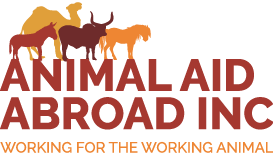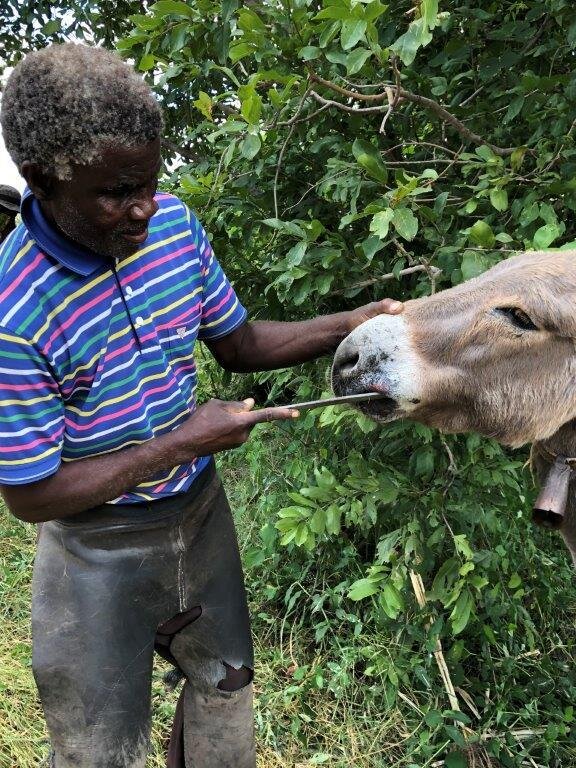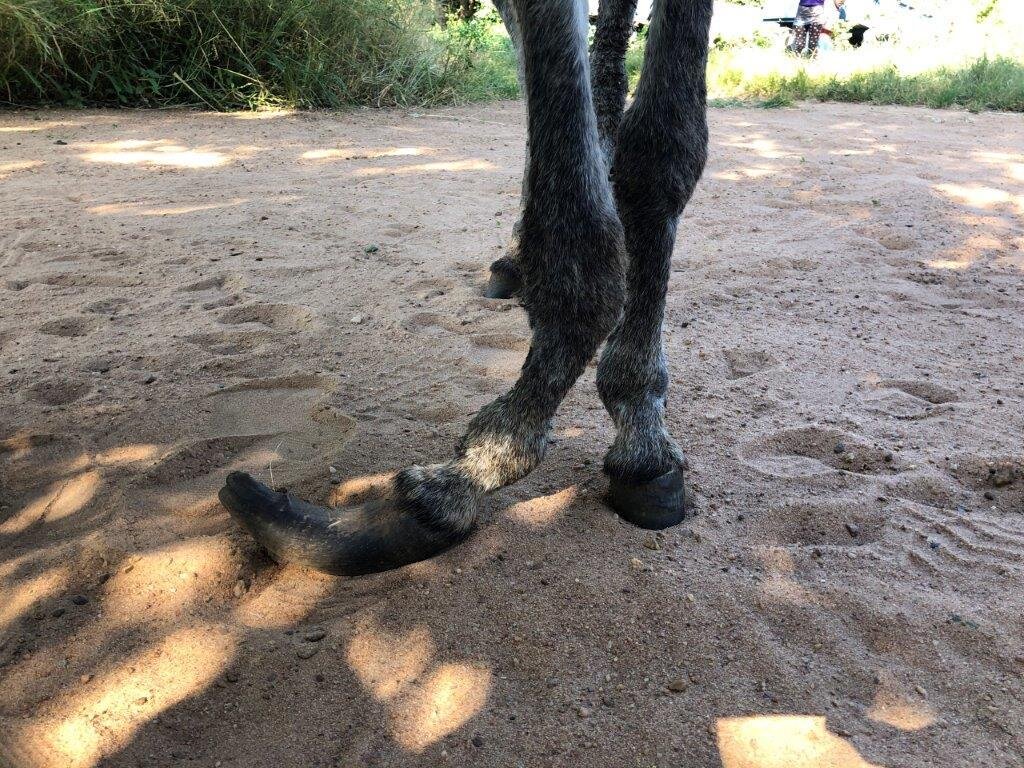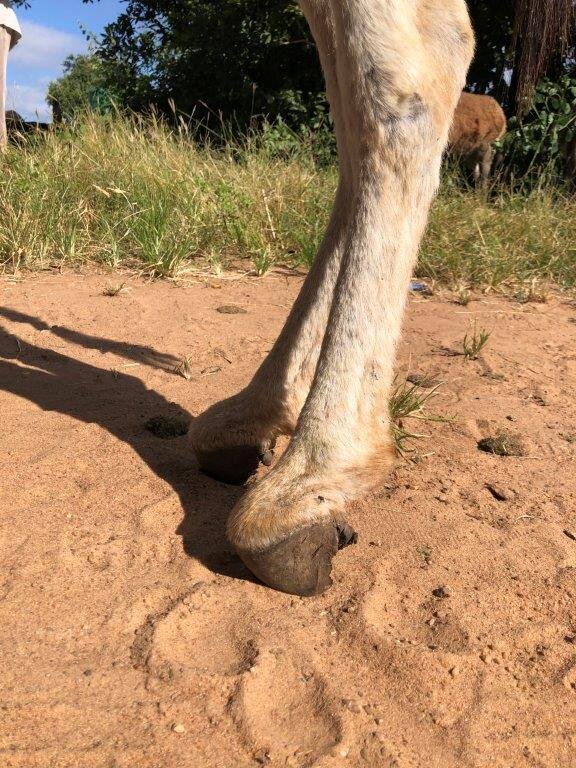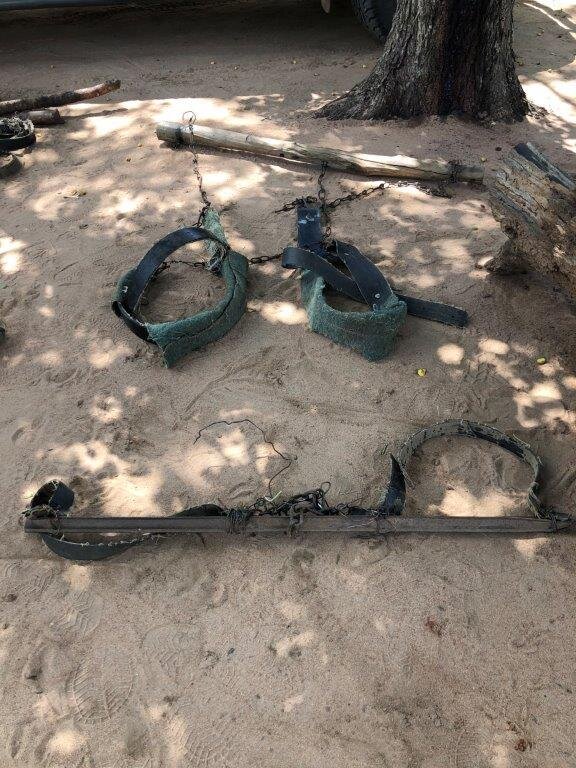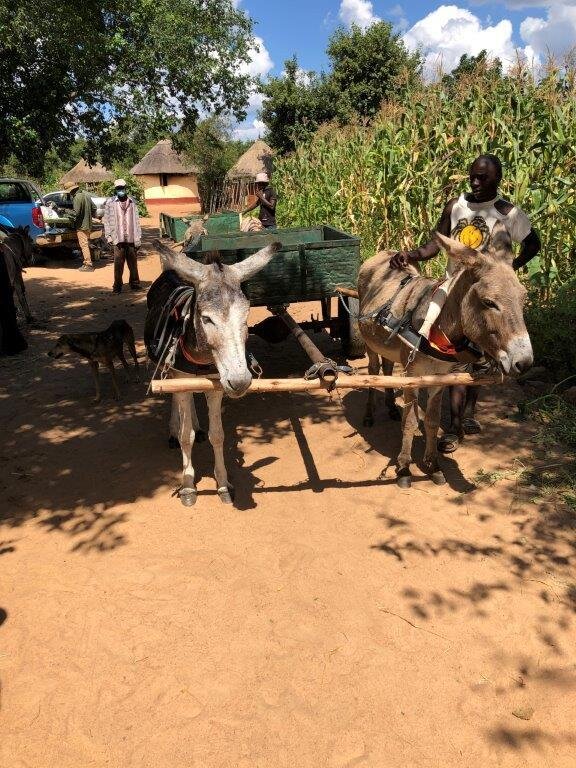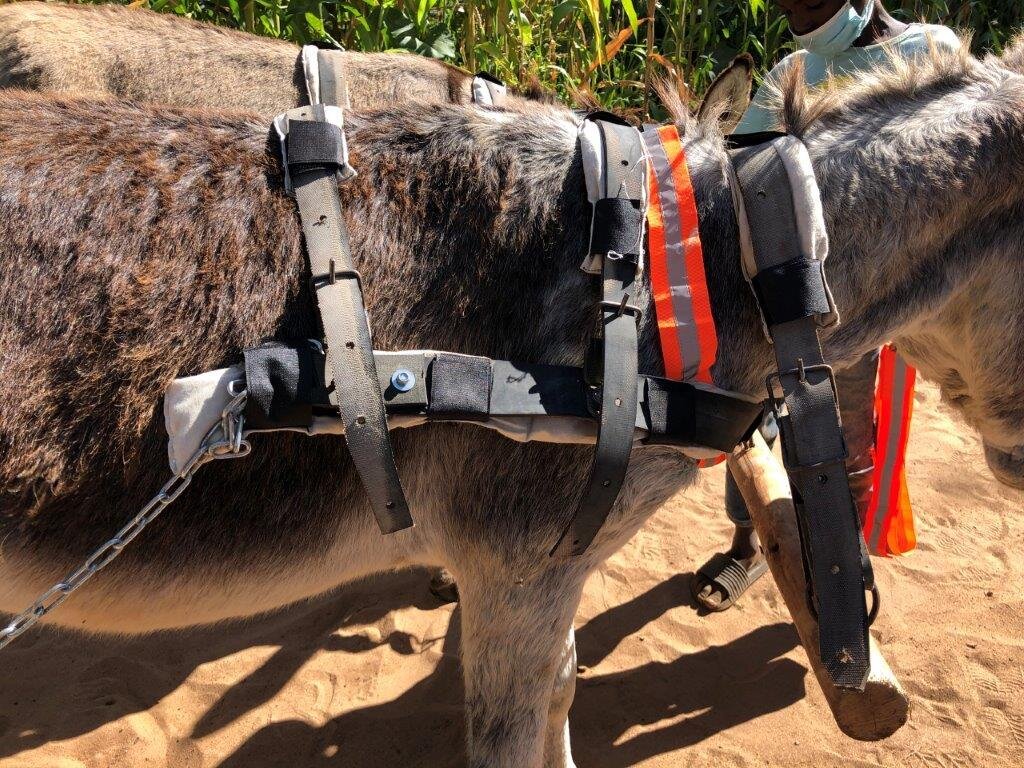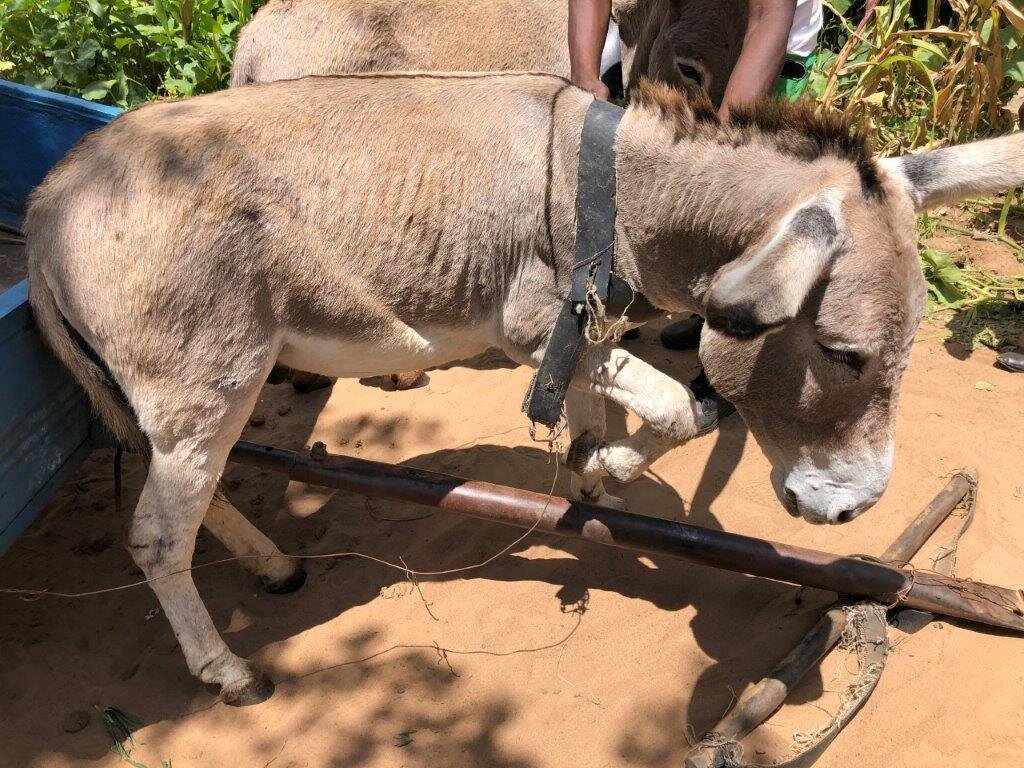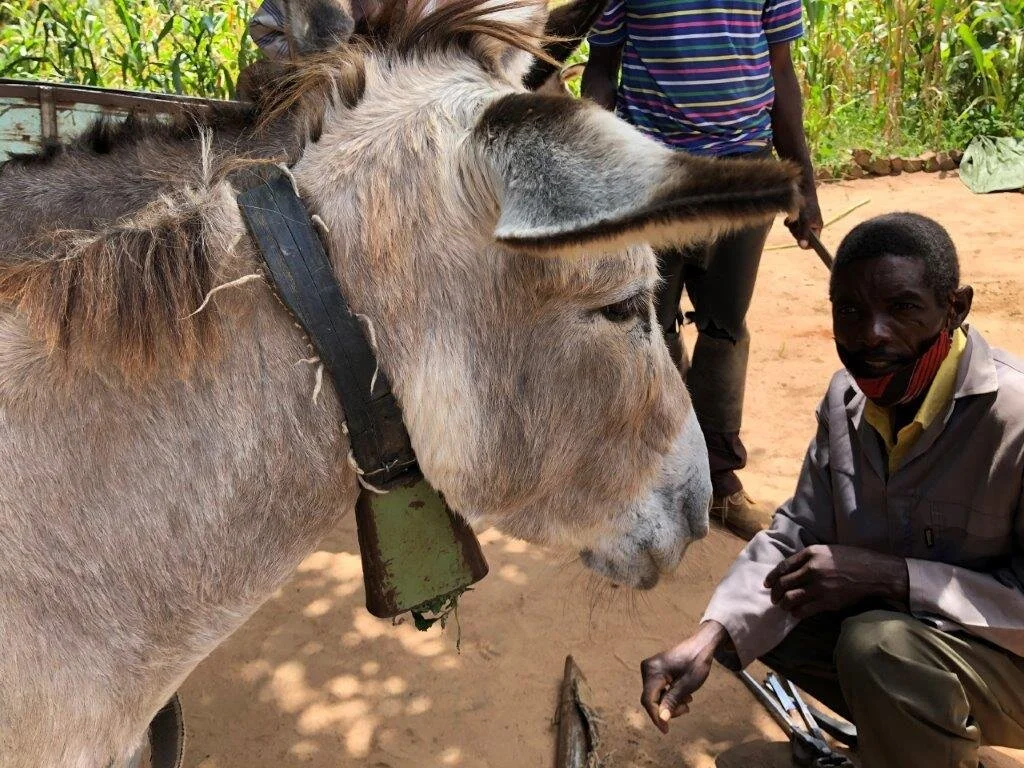New Partnership Benefits Donkeys in Zimbabwe
Animal Aid Abroad is excited to announce a new partnership with a fantastic group in Zimbabwe, the Matabeleland Animal Rescue and Equine Sanctuary (MARES), who run working donkey projects in Dete and Bulawayo. MARES recently held a donkey clinic and workshop in Dete, where they treated no less than seventy donkeys over the course of one day.
The farrier was kept extremely busy attending to the donkeys’ hooves. All seventy donkeys required farrier work as their hooves had overgrown due to the rains and soft ground, preventing them from being naturally filed down. Eight donkeys had particularly problematic hooves, so the MARES’ farrier will travel to Dete again in six weeks’ time to ensure their hooves are maintained.
The working donkeys were also treated for wounds, eye problems and worms. Many donkeys were underweight and suspected to have worms, therefore, a full deworming program was completed.
During the clinic, inhumane harnesses made from wood and wire were cut away and replaced by new, padded harnesses.
These humane harnesses will prevent wounds and greatly increase the comfort of donkeys as they go about their daily work.
The team also secured reflective tape to the front and back of each cart to prevent road accidents and provided the donkeys with reflective neck bands to increase their safety at night.
MARES reported that a significant issue for working donkeys in Dete are the extremely heavy metal poles used on donkey carts. The poles alone weigh over 40 kilograms! They make work even more laborious for donkeys in this area. MARES are proposing an ambitious project whereby all metal poles would be removed from carts and replaced with lighter wooden poles, thus alleviating some of the hardship working donkeys in Dete face.
Another project MARES wish to instigate is creating removable straps for the bells placed around working donkeys’ necks. The current practice is to use thick seatbelt straps, which are wired tightly and are not removable. They hinder working donkeys’ movements when they are harnessed to carts and the straps often hit or injure them. MARES are in the process of obtaining a quote for manufacturing kinder, removable bell straps.
Something that disturbed the team was the significant number of young donkeys being forced to work in Dete. In Zimbabwe, it is against the law for donkeys under three years of age to be utilised as working animals, so the MARES’ team strongly reinforced this fact with the village Chief and animal owners.
On a more positive note, MARES reported that the condition of working donkeys in Dete has greatly improved overall since their involvement. They only needed to treat two donkeys for heavy tick infestations and two for harness wounds.
Unfortunately, they did need to remove one donkey from his owner as the team suspected a fractured patella but the owner insisted the donkey was merely suffering from cramps. This donkey is now safe in MARES’ hospital sanctuary and should hopefully heal over time.
We will continue to update our readers on our exciting new partnership with MARES and the amazing work they are doing for donkeys in Zimbabwe.
